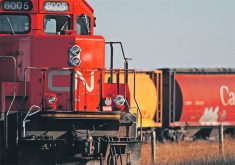Farm fuel purchased at cardlocks will be exempt from the federal carbon tax when it comes into force April 1.
Draft regulations released in the March 19 federal budget included a provision for the exemption, but with a 30-day comment period.
That led to some confusion as to when exactly the exemption would be in place.
According to the finance department, the Canada Revenue Agency, which is responsible for administering the program, “will administer draft amendments on the assumption that the amendments will be enacted. As such, the expanded relief for farmers would be available as of April 1.”
Read Also

Saskatchewan throne speech promises strong economy
Saskatchewan’s legislative agenda for the coming year will focus on meeting the challenges of new world trading relationships, said the speech from the throne.
Farmers do have to provide their fuel distributors with a signed certificate from the CRA to obtain the exemption. The form is available on the CRA website.
Earlier, farm organizations and fuel distributors expressed concern that cardlock fuel bought by farmers in Saskatchewan and Manitoba would be subject to the tax because of a regulatory oversight. Many farmers obtain all of their farm fuel from cardlocks.
“We appreciate the government’s attention and quick response in addressing the matter, helping us to continue serving our farm customers from these cardlock facilities,” said Pam Skotnitsky, Federated Co-operative Ltd.’s vice-president of strategy.
Contact karen.briere@producer.com
















